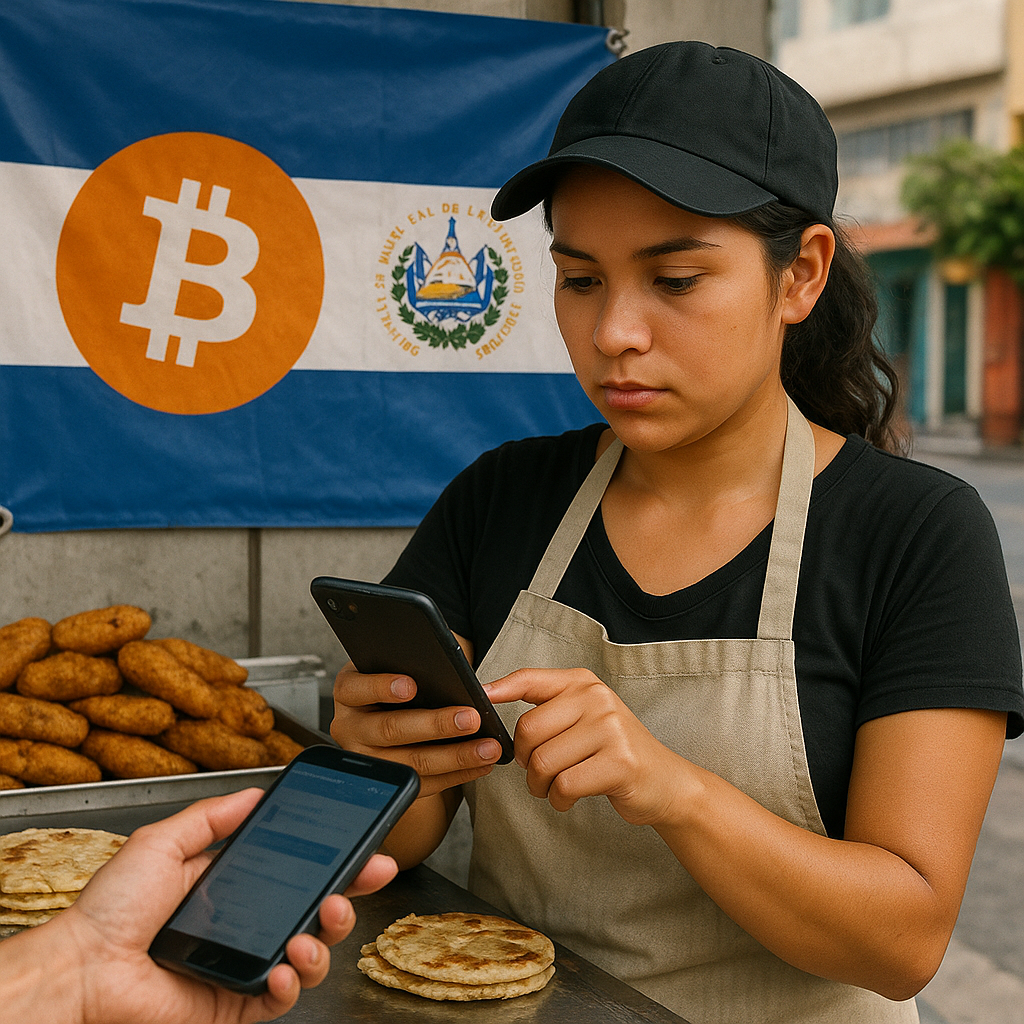El Salvador Officially Adopts Bitcoin as Legal Tender
On September 7, 2021, El Salvador made history by becoming the first country in the world to adopt Bitcoin as legal tender. The bold move, led by President Nayib Bukele, has sparked global debate — with supporters calling it revolutionary and critics warning of potential financial chaos.
Just one week later, on September 15, El Salvador celebrated its independence with Bitcoin already integrated into daily transactions. What does this mean for the country, for Bitcoin, and for the future of global finance?
How the Bitcoin Law Works
El Salvador’s Bitcoin Law was passed by Congress in June 2021 and came into effect on September 7. The law mandates that:
-
Bitcoin must be accepted as a form of payment alongside the U.S. dollar (El Salvador’s other official currency).
-
Prices can be listed in Bitcoin, and taxes can be paid in Bitcoin.
-
The exchange rate between Bitcoin and the dollar is to be freely determined by the market.
-
A government-run wallet, Chivo, was launched to facilitate transactions. Each user received $30 in BTC as an incentive.
Merchants are technically required to accept Bitcoin, although there are exceptions for those lacking access to the necessary technology.
Why El Salvador Did It: Motivations Behind the Move
There were multiple reasons behind this decision, many of which are unique to El Salvador’s economic context:
-
Financial Inclusion
Over 70% of Salvadorans are unbanked. Bitcoin offers a way to access digital payments without needing a traditional bank account. -
Remittances
Remittances make up nearly 25% of El Salvador’s GDP. Using Bitcoin can reduce the high fees charged by traditional money transfer services like Western Union. -
Tourism and Investment
Bukele hopes this move will attract crypto entrepreneurs, tourists, and startups, branding El Salvador as a “Bitcoin-friendly” innovation hub. -
Sovereignty and Independence
By embracing a decentralized currency, El Salvador reduces its reliance on the U.S. Federal Reserve and U.S. monetary policy.
Public Response: Mixed Reactions from Citizens
The rollout has been rocky. While some Salvadorans have embraced the change, many remain skeptical:
-
Technical issues plagued the Chivo app on launch day.
-
Protests broke out in the capital, with citizens opposing the forced adoption of a volatile digital currency.
-
Concerns were raised about privacy, surveillance, and the transparency of Bitcoin purchases made by the government.
That said, some small business owners and vendors have reported real benefits: faster payments, more foreign customers, and less reliance on cash.
Bitcoin Beach: The Early Experiment
Before the national law, a pilot project known as Bitcoin Beach had already been underway in El Zonte, a small coastal town. There, an entire community used Bitcoin for everyday purchases — from food and rent to school fees.
This initiative demonstrated that Bitcoin can function as a grassroots economy, especially in areas with limited access to banks. El Zonte became the proof-of-concept for nationwide adoption.
International Reactions: Praise, Warnings, and Skepticism
The global response has been intense:
-
The International Monetary Fund (IMF) expressed concerns, warning of macroeconomic instability and legal risks.
-
The World Bank declined to assist with implementation due to transparency concerns.
-
U.S. lawmakers questioned whether El Salvador was undermining dollar-based financial systems.
-
Meanwhile, crypto advocates celebrated the move as a major milestone in Bitcoin’s evolution.
Several developing countries are now reportedly observing the outcome closely to assess whether they could follow suit.
Market Response: Bitcoin Dips, Then Recovers
On the day El Salvador’s Bitcoin law took effect, Bitcoin’s price dropped sharply, falling below $44,000 from over $52,000 — wiping out nearly 10% of its value in a matter of hours.
This was likely triggered by a mix of:
-
Sell-the-news sentiment
-
Broader market corrections
-
Uncertainty around the effectiveness of the rollout
However, within days, the market stabilized — and El Salvador announced it had bought 550 BTC, signaling long-term confidence.
Risks and Concerns: What Could Go Wrong?
While innovative, El Salvador’s approach is not without significant risks:
-
Volatility: Bitcoin can swing 10–20% in a day. This makes it difficult for pricing, wages, and savings.
-
Cybersecurity: A national digital wallet opens potential attack vectors.
-
Sovereign debt: Moody’s downgraded El Salvador’s credit rating, citing crypto uncertainty.
-
Enforcement: It’s unclear how the government will handle non-compliant merchants.
Many experts worry that if the experiment fails, it could damage trust in Bitcoin and worsen El Salvador’s financial position.
Opportunities: A Case for Innovation
On the other hand, if El Salvador succeeds, the upside is enormous:
-
It could become a hub for crypto innovation in Latin America.
-
Citizens may gain greater economic freedom and alternatives to failing banking infrastructure.
-
The country could diversify its economy, attracting global talent and Bitcoin tourism.
-
Success could inspire copycat policies in other nations like Paraguay, Panama, or Ukraine.
This is not just a story about Bitcoin — it’s about a small country trying to leapfrog economic barriers through bold policy.
Conclusion: A Global Crypto Turning Point
El Salvador’s adoption of Bitcoin as legal tender is one of the most audacious experiments in modern monetary policy. It’s a gamble with real risks — but also with unprecedented potential rewards.
Regardless of whether the outcome is a success or a cautionary tale, September 2021 will be remembered as the month Bitcoin crossed from speculation to sovereign adoption.
The world is watching — and the crypto era has officially entered a new phase.
